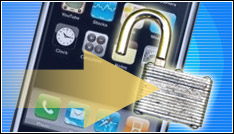

Apple is doubtlessly gnashing its teeth after federal regulators ruled on 26 July that iPhone owners can legally “jailbreak” their smartphones and use them to run software not authorised by the company—but Apple’s opportunities for recourse may also be limited, according to at least one analyst.
“A major part of how Apple assures quality and profit is control over their ecosystem,” Rob Enderle, principal analyst for the Enderle Group, wrote in a 27 July e-mail to eWEEK. “They won’t give up that control easily but they will likely find, as Microsoft certainly did, that governments are more powerful than they are.”
Enderle added: “While they initially may try to get around rulings like this to reassert control they will also probably find that governments aren’t as stupid as many think and eventually find another way to assure quality of profit.” Depending on Apple’s appetite for action, “I don’t expect this to be either a short battle or an inexpensive one for the company.”
The jailbreak ruling came in response to a 2008 petition by the Electronic Frontier Foundation, which asked for three exemptions to the Digital Millennium Copyright Act: that noncommercial video creators be allowed to rip clips from DVDs for “fair use remixes,” that cell phone owners be able to unlock their devices for use on “cellular networks of their choosing,” and that smartphone owners be able to jailbreak their devices to “use applications of their choosing.”
The Digital Millennium Copyright Act, passed in 1998, generally forbids users to “avoid, bypass, remove, deactivate, or impair a technological measure” that controls access to a “work” such as a computer program.
As the overseer of the Copyright Office, the Library of Congress ruled in favor of the Electronic Frontier Foundation’s petition, as well as three other exemptions covering video games, computer programs protected by “dongles” and literary works distributed in ebook format.
In a statement, the Library of Congress outlined the “jailbreaking” and “other cellular networks” exemptions as follows:
“(2) Computer programs that enable wireless telephone handsets to execute software applications, where circumvention is accomplished for the sole purpose of enabling interoperability of such applications, when they have been legally obtained, with computer programs on the telephone handset
“(3) Computer programs, in the form of firmware or software, that enable used wireless telephone handsets to connect with a wireless telecommunications network, when circumvention is initiated by the owner of the copy of the computer program solely in order to connect to a wireless telecommunications network and access to the network is authorized by the operator of the network.”
Technically, that language could apply to smartphones other than the iPhone. Apple has been particularly strident in its periodic arguments against jailbreaking: In response to questions submitted by the Copyright Office in 2009, Apple argued that the practice not only violated a license agreement between Apple and the iPhone owner, but could lead to widespread destruction.
“Before partnering with Apple to provide voice and data services, it was critical to AT&T that the iPhone be secure against hacks that could allow malicious users, or even well-intentioned users, to wreak havoc on the network,” read a statement issued by Apple at the time. “Because jailbreaking makes hacking of the BBP software much easier, jailbreaking affords an avenue for hackers to accomplish a number of undesirable things on the network.”
Among those undesirables: having multiple smartphones with the same, artificially manipulated ECID (Exclusive Chip Identification) number connected to a cell tower, potentially leading to a catastrophic crash of tower software.
Apple insisted that, in order for the Electronic Frontier Foundation’s petition to be carried out, the iPhone’s firmware would need to be decrypted and modified; those modifications to the bootloader and the OS would constitute a breach of the Internet Protocol Service Level Agreement (IP SLA). Apple has subsequently taken steps to make its iPhones more jailbreak-proof.
On 26 July, an Apple spokesperson told Cult of Mac that jailbreaking an iPhone would still void the warranty. “Apple’s goal has always been to insure that our customers have a great experience with their iPhone and we know that jailbreaking can severely degrade the experience,” the blog quoted as the spokesperson’s official statement. “As we’ve said before, the vast majority of customers do not jailbreak their iPhones as this can violate the warranty and cause the iPhone to become unstable and not work reliably.”
Nvidia, xAI to participate in project backed by BlackRock, Microsoft to invest $100bn in AI…
Google agrees to pay $28m to settle claims it offered higher pay and more opportunities…
Chinese social media giant Tencent triples capital expenditure on AI data centres and other areas…
EU gives Apple demands for third-party developer access to iOS features and greater responsiveness in…
Preliminary findings from European Commission argue Google unfairly restricts app developers, self-preferences in search
Belgian authorities charge five people in probe into suspected corruption involving Huawei, following raids and…